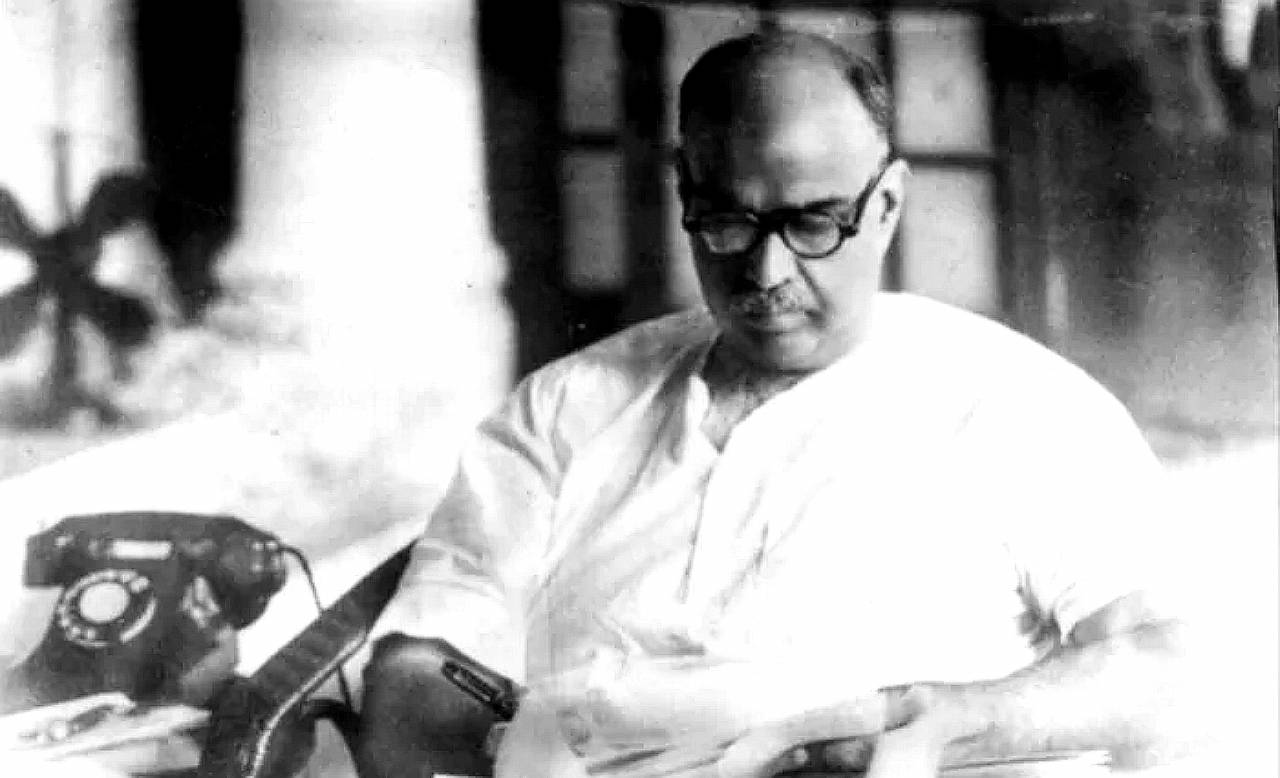Indian politician Syama Prasad Mukherjee was born on July 6, 1901. The youngest ever Vice-Chancellor of Calcutta University and Independent India’s first Minister of Industry and Supply. He was a qualified barrister and was passionate about education.
‘Ek desh mein do vidhan, do nishaan, do pradhaan nahin chalega’ and ‘Jahan hue balidan Mookerjee woh Kashmir humara hai’ are the two calls associated with Syama Prasad Mookerjee, the founder of the Bharatiya Jana Sangh, the political arm of the Rashtriya Swayamsevak Sangh (RSS) and the bud of what is today the Bharatiya Janata Party (BJP).
It is not surprising, therefore, that the BJP and the RSS hold Mookerjee in high regard. This is particularly because Mookerjee ties the two outfits closely to Jammu and Kashmir (J&K) and the contentious issue of Article 370.
A minister in independent India’s first cabinet, Mookerjee was a Bengali educationist, a barrister and, according to a website dedicated to him and his work, a “humanist and politician”. Born in 1901 in then Calcutta, Mookerjee graduated in English in 1921 and enrolled as an advocate in Calcutta High Court in 1924.
Mookerjee’s political career was marked by “causes to unite Hindu voices”, according to the website. In 1939, after meeting VD Savarkar and NC Chatterji, Mookerjee decided to join the Hindu Mahasabha and went on to become its president in 1944.
Mookerjee was one of the three non-Congress nominees to have been inducted in Jawaharlal Nehru’s cabinet in 1947, but he quit in 1950 after disagreements with the Nehru Cabinet on a number of issues, including those related to J&K. According to reports, Mookerjee had received a number of complaints from the Hindus residing in J&K about Sheikh Abdullah’s government.
In 1951, with the formation of his own party, the Jana Sangh, Mookerjee made his objections against Article 370 clear, and stated that other provisions of the Indian Constitution should also be applied to J&K. He also extended his support to the agitation of the Dogras, who were protesting against the Abdullah government.
Mookerjee also reportedly exchanged over 11 letters with Nehru and six with Abdullah over the subject of J&K’s complete accession. He also tried pursuing the government to stop crackdown on the Praja Parishad, a party heading the Dogra agitation. With Jana Sangh cadre and leaders hitting the streets and offering ‘satyagrahas’ in New Delhi, Mookerjee has been credited with giving a voice to the Hindus in Jammu.
In May 1953, Mookerjee decided to enter J&K without taking the state government’s permission, and was arrested under the Public Safety Act before entering Jammu. Over a month later, on June 23, Mookerjee died, reportedly in a makeshift prison in Srinagar and allegedly after he was given an injection to which he was allergic. Though Mookerjee died of a heart attack, BJP and RSS leaders have maintained that his death was suspicious.
In any case, both the organisations consider Mookerjee to be a martyr for the cause of Kashmir— which is why the second slogan, popularised after Mookerjee’s death. Ever since, the BJP and the RSS have held his ‘martyrdom’ as the party’s inspiration behind the revocation of Article 370.
This is also why it is an emotive issue for the party and its leaders, as was displayed by the uproar in Lok Sabha on August 6 after National Conference (NC) leader Hasnain Masoodi’s comments, in which he said Article 370 came into effect with “the blessings of Syama Prasad Mookerjee”.
Reacting to the scrapping of the provisions of Article 370, Mookerjee’s nephew on August 6 said provisions of Article 370 of the Constitution was “promoting disharmony” among the people and needed to be changed.
Courtesy: Money Control



















Discussion about this post